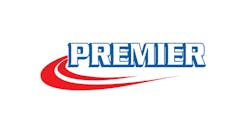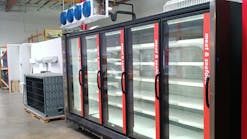The recent (and ongoing) turmoil in the markets and the uncertain economic future make it more important than ever that you keep a eye on your business plan, and make sure it will enable your company to weather whatever is ahead.
“We’re in a different kind of market than most of us have ever been in before, and the first thing most contractors have to do is plan for contingencies,” says Jim Hinshaw, owner of residential HVAC sales consultants, Sales Improvement Professionals, Inc., Ft. Collins, CO. “If things aren’t going the way you thought they would when you drew up your business plan, you must have a ‘Plan B.’ Flexibility is the key to survival.”
A residential HVAC contractor who planned on growing his business by 20% in the past year, for example, and added a technician, two installers, and office staff to handle the new volume, may find that forces beyond his or her control are leaving the company well short of the planned-for growth. That means it’s time for a contingency plan to kick in. Such a plan could take the form of working to maximize revenue from existing customers, or investing in tires and brakes to keep the current truck fleet on the road an extra year.
“When a business doesn’t grow as anticipated, or suffers an off-year in terms of revenue, it may mean that everyone has to take a second or third look at the business plan to say, ‘This isn’t working right now; where do we go from here?’” says Hinshaw. “But it doesn’t mean the plan goes out the window. If you have a good business plan, it will survive some contingencies, and you can come back to it when the situation changes.”
Hinshaw’s company, Sales Improvement Professionals (www.siptraining.com) offers, among other things, training and consulting for residential contractors, their salespeople, and their office staff. He says a common problem he sees, especially on the smaller residential company level, is that contractors often don’t know what business they’re in.
“Many contractors say they’re in the heating and air conditioning business,” Hinshaw says. “But they’re not. They’re in the service business. That means their business plan had better reflect the variety of services that customers are demanding from their HVAC contractors, such as Indoor Air Quality products, ventilation, fireplaces, and so on. If your business plan doesn’t include these things, its scope is too limited.”
Other things to look at when you examine your business plan, according to Hinshaw:
- Are you getting all the revenue you can out of your existing people? “I’m a big proponent of rewarding service people with an increased hourly rate or bonuses if they go above and beyond and sell things for your company, whether it’s humidifiers or smoke alarms or radon detectors,” Hinshaw says.
- Test everything. Look at your business practices, from how you answer the phones to how you turn a new system over to a customer. “Always be willing to ask, ‘Why not,’” Hinshaw says. “Why can’t we go flat rate? Why can’t we provide our technicians with wireless tablets and go to a paperless invoicing system? Why can’t we sell water treatment systems or fireplaces?”
- Include infrastructure updates. Make sure your business plan includes the cost of making the upgrades necessary to sustain and grow your company in a competitive environment.
- Think short-, medium-, and long-term. “If a contractor knows where they want their company to be in five years, that will drive what they need to accomplish this year, which in turn drives what they need to accomplish in the next 90 days,” Hinshaw says. “Too often in our industry, long-range planning consists of how to make payroll at the end of the month.”
- Find an accountability partner. Share your business’ goals with someone outside your business, such as a trusted friend in another industry, or your CPA or lawyer. Let them monitor your progress as you work toward your 90-day, one-year, and five-year goals.
- Review your plan’s exit strategy. Most people don’t want to keep working until the day they die. “You’d better have something in place, whether it’s selling the business or turning it over to a family member or trusted employee,” Hinshaw says. “And make sure the person you have in mind is on board with your plan.”
Keep Employees in the Loop
Paul Hobaica, president of Hobaica Services, a $5 million family-owned residential and commercial HVACR contracting firm in Phoenix, AZ, says it’s important to keep all employees in the loop on the business plan.
Hobaica, whose company is the Air Conditioning Contractors of America’s (ACCA’s) 2008 Residential Contractor of the Year, says three times each year the company sponsors events to bring everyone together. “We make a big deal about sharing our business plan and its goals,” Hobaica says. “We make sure everyone is on board, and knows where the bus is taking them.“
He adds that sharing the “how” is just as important as sharing the “why.”
“We have goals in every department, and plans to meet those goals, because without a way to get there the goal is useless,” Hobaica says. “In service, for example, if we have a goal of X dollars, we have to determine how many employees we need on the road to reach that goal, as well as how many trucks, and how much volume we’re going to need from each of those trucks.”
Hobaica advises contractors to remember one key point: Take care of your people. “Ultimately, a business plan, goals, and everything else comes down to people. You can have the best business plan in the world, but without good people you won’t meet its goals.”
Strengths, Dangers, Opportunities
At Donley Service Center, Inc., a 32- year-old, $10 million residential HVAC and plumbing business also based in Phoenix, a four-person management team meets annually. Their goal is to determine the three biggest strengths that need to be maintained and maximized, the three biggest opportunities that must be focused upon and captured, and the three biggest dangers the company faces.
“Out of those nine items, we then pick three that become our goals and objectives for the year,’” says company President Mike Donley. “We then subject ourselves to a litmus test: are we accomplishing what we set out to accomplish? We do this in on a quarterly basis with our employee council, which consists of employees from across our business groups.”
Donley says if he was to offer one piece of advice to other contractors regarding their business plans, it would be to seek out other opinions.
“Have someone you trust — your accountant, your attorney, or a peer — check your business plan, or even write it for you. Having an outside perspective can be extremely valuable,” Donley says.
Flexibility and Benchmarks
At A.O. Reed, a major commercial contractor based in San Diego, CA, Manager of Special Projects Ed Blum agrees with Hinshaw that the key to a good business plan is flexibility.
“Keep your finger on the pulse of your local market in addition to what’s happening at state and national levels,” Blum advises. “You must be prepared to modify when your market and economy changes. For example, new construction in the downtown San Diego residential and retail market has come to a screeching halt after a significant building boom. There has also been an increase in available office space as companies fail or cut back on staff in the commercial market. A good plan should be flexible enough to accomodate such change.”
Blum says the following benchmarks should be reviewed on a monthly basis. While these are based on a service department, the concepts apply to reviewing the entire company’s business plan:
- Review each line item on your financial statement. A good financial report should include the actual sales and/or expense dollars, and also a percentage for each sales or expense item. It’s sometimes easier to see a deviation in the percentage than the dollars. Examples might be shop labor increasing from 1 to 3%, or a similar increase in inventory.
- Review the number of employees in the office as compared to the field. In a pure service operation this ratio should be one person in the office (administration, sales, and management) for every 2.5 technicians in the field. This ratio might be as low as one-in to two-out in a small company. The hiring of office personnel should be somewhat based on this formula. Office growth should lag behind field growth.
- Review sales per vehicle. In a pure commercial service operation a good sales per truck would be $225,000 per year (or $18,750 per month) versus a poor sales per vehicle of $180,000 per year ($15,000 per month).
A careful review of your business plan is essential. And it seems like it would be would be downright dangerous to not close with Hinshaw’s most important advice about your business plan: Have one.
| Guidance For the next generation A business plan is always and important element of a successful contracting business, but its importance increases exponentially when the business moves into its second generation, says consultant Jim Hinshaw. “When a company is being turned over to second generation ownership, a logical, workable business plan is a must.” He points out that the company’s founder/owner often had the business plan “in his head.” This may have worked fine for years, but if it doesn’t get onto paper, the company’s survival could well be at risk. “It’s one thing for someone to pass the torch, but remember that someone else has to pick it up,” Hinshaw says. “In many cases that second generation hasn’t had to struggle the way that first generation did. They didn’t see the grief. And in some cases they’ve never been through a downturn. They’ll need the guidance that a good business plan provides.” |








